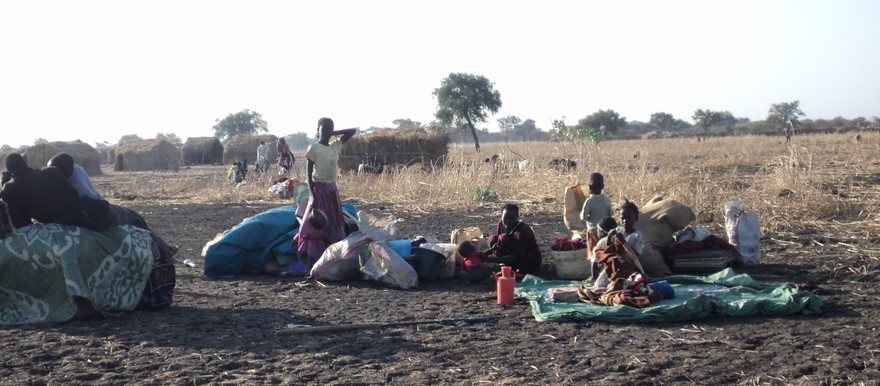A senior chief of the Blue Nile refugees in Upper Nile State reassured that there will be no return yet to the conflict zone in spite of the serious fight witnessed last week between the host community and the refugee community in Maban County.
Twelve people were injured including eight seriously in clashes last Thursday east of Doro Camp in Maban County. Over the last several days the situation has been more stable, according to local sources, but there was some uncertainty over whether refugees would return to the SPLA-N controlled area in southern Blue Nile owing to the unpredictable security situation in the Maban area.
Habil Zeky, the deputy coordinator of Blue Nile refugees in Doro Camp, said to Radio Tamazuj that he had discussed with his people not to go back to areas of conflict but that he prefers them to stay in Doro until further solutions are found.
“We prevented the refugees to go to the side of Yabus area because the site is not safe because on 27th of this month there were some civilians attacked in that area,” the chief said. He also denied reports that some of his members moved to Soda, an area under SPLM-N control. “No people went to Soda area under SPLM-N control,” he said.
The chief noted that there have been no security incidents in the camp over the last two days but people are still fearful because the authorities in the area are yet to determine how to solve the problems facing the two communities.
Executive Director of Maban County Rali Abiel Rual for his part said that the conflict arose between the Maban community and the Blue Nile refugees when some individuals from the refugees stole one of native’s goats.
He described the goat as belonging to a certain poor family with baby twins who had lost a goat and found it to have been slaughtered by some refugees. “When he tried to ask them for the reason why these people slaughtered his goat then he was shot immediately,” said the county official.
Rali Abiel Rual said that the issue escalated in the evening time as the two communities prepared themselves for fighting with sticks, bows and spears. The fighting took place at night at a water source. “We went there at night to solve the problem but we didn’t manage to do anything until the next morning when the police forces were brought in order to disperse the clashes,” he said.
“Twelve people were injured with eight of them with serious injuries and they are now receiving treatment from the local dispensary,” he added.
The officer put the blame on the settlement arrangements of the refugee camp because of the lack of separation from the host community’s residential areas, saying that a refugee’s house might be found near a native’s house.
“We as the county authorities are in consecutive meetings in order to decide for a new place where we can transfer the refugees in order to separate them – not to be in one place again as they will continue fighting,” he added
He pointed out that those people will not trust each other again, which is why they have to be separated: “They will be transported to Kaya about 3 kilometres from the previous place or to Banishuwa so as to avoid further confrontations.”
The official also disclosed that a certain military commander from Blue Nile came and met with the refugees and told them to shift from the current area to a new location near the border with Sudan. He pointed out that that area is not safe because they can be attacked there by the Sudan Armed Forces or by Antonov warplanes at any time.
On the other hand, at the proposed new location the refugees will have enough space for their accomadation and cultivation. “If we send them to Banishuwa that place is good – it can accommodate them and even they can cultivate there,” he concluded.
Reporting by Radio Tamazuj
File photo: Refugees in southern Blue Nile, December 2011 (Radio Tamazuj)




